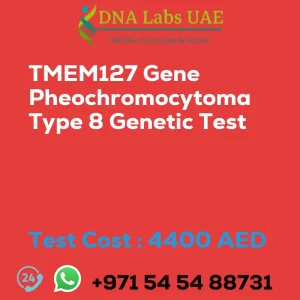NRAS Gene NRAS selective sequencing of exons 2 and 3 Genetic Test
Test Name: NRAS Gene NRAS selective sequencing of exons 2 and 3 Genetic Test
Components: Price 4400.0 AED
Sample Condition: Blood or Extracted DNA or One drop Blood on FTA Card
Report Delivery: 3 to 4 Weeks
Method: NGS Technology
Test type: Cancer
Doctor: Oncologist
Test Department: Genetics
Pre Test Information: Clinical History of Patient who is going for NRAS Gene NRAS, selective sequencing of exons 2 and 3 NGS Genetic DNA Test. A Genetic Counselling session to draw a pedigree chart of family members affected with NRAS Gene NRAS, selective sequencing of exons 2 and 3 NGS Genetic DNA Test gene NRAS
Test Details
The NRAS gene is a human gene that encodes a protein called NRAS, which is a member of the RAS family of proteins. The NRAS protein is involved in cell signaling pathways that regulate cell growth and division. Mutations in the NRAS gene can lead to abnormal activation of these pathways, contributing to the development of various types of cancer.
Selective sequencing of exons 2 and 3 of the NRAS gene refers to a specific genetic test that focuses on sequencing only these specific regions of the gene. Exons are regions of DNA that contain the coding sequences for proteins, and exons 2 and 3 of the NRAS gene are particularly important for its function.
Next-generation sequencing (NGS) is a high-throughput sequencing technology that allows for the rapid and efficient sequencing of large amounts of DNA. In the context of the NRAS gene, NGS can be used to identify specific mutations or variations in exons 2 and 3 that may be associated with cancer or other diseases.
The NRAS gene, along with other RAS genes, is commonly sequenced in clinical settings to identify mutations that may guide treatment decisions. For example, certain mutations in NRAS are associated with resistance to specific targeted therapies, such as EGFR inhibitors in the treatment of colorectal cancer.
By selectively sequencing exons 2 and 3 of the NRAS gene using NGS technology, clinicians and researchers can gain valuable insights into the genetic makeup of tumors and potentially tailor treatment options for patients based on their specific NRAS mutation status.
| Test Name | NRAS Gene NRAS selective sequencing of exons 2 and 3 Genetic Test |
|---|---|
| Components | |
| Price | 4400.0 AED |
| Sample Condition | Blood or Extracted DNA or One drop Blood on FTA Card |
| Report Delivery | 3 to 4 Weeks |
| Method | NGS Technology |
| Test type | Cancer |
| Doctor | Oncologist |
| Test Department: | Genetics |
| Pre Test Information | Clinical History of Patient who is going for NRAS Gene NRAS, selective sequencing of exons 2 and 3 NGS Genetic DNA Test. A Genetic Counselling session to draw a pedigree chart of family members affected with NRAS Gene NRAS, selective sequencing of exons 2 and 3 NGS Genetic DNA Test gene NRAS |
| Test Details |
The NRAS gene is a human gene that encodes a protein called NRAS, which is a member of the RAS family of proteins. The NRAS protein is involved in cell signaling pathways that regulate cell growth and division. Mutations in the NRAS gene can lead to abnormal activation of these pathways, contributing to the development of various types of cancer. Selective sequencing of exons 2 and 3 of the NRAS gene refers to a specific genetic test that focuses on sequencing only these specific regions of the gene. Exons are regions of DNA that contain the coding sequences for proteins, and exons 2 and 3 of the NRAS gene are particularly important for its function. Next-generation sequencing (NGS) is a high-throughput sequencing technology that allows for the rapid and efficient sequencing of large amounts of DNA. In the context of the NRAS gene, NGS can be used to identify specific mutations or variations in exons 2 and 3 that may be associated with cancer or other diseases. The NRAS gene, along with other RAS genes, is commonly sequenced in clinical settings to identify mutations that may guide treatment decisions. For example, certain mutations in NRAS are associated with resistance to specific targeted therapies, such as EGFR inhibitors in the treatment of colorectal cancer. By selectively sequencing exons 2 and 3 of the NRAS gene using NGS technology, clinicians and researchers can gain valuable insights into the genetic makeup of tumors and potentially tailor treatment options for patients based on their specific NRAS mutation status. |








